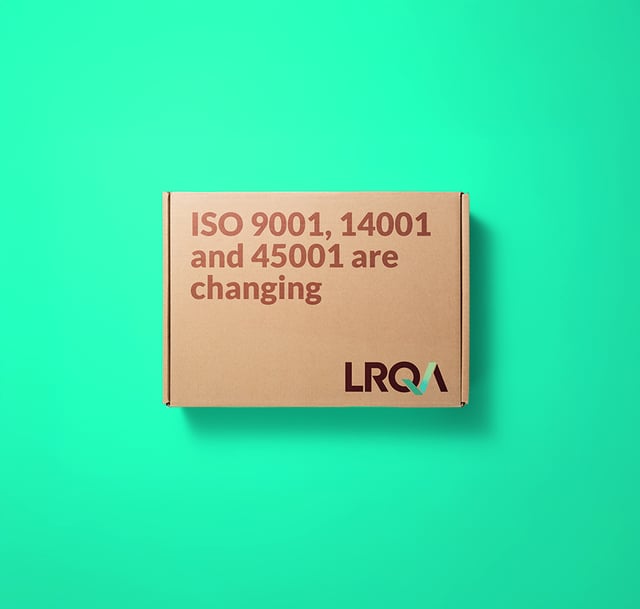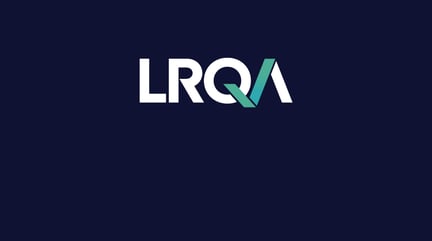As ISO standards are evolving - most notably ISO 14001, ISO 9001 and ISO 45001 - many organisations are rightly focusing on what needs to change within their systems. One critical factor can be overlooked: the people who will implement those changes.
Successful transitions are not just about aligning documents and ticking boxes. They are about building awareness, embedding understanding and enabling people to act confidently in line with new expectations. Expert-led training plays a crucial role in making this happen, bringing real-world knowledge and practical insight to ensure that updates are not only understood but applied effectively.
Going beyond the paperwork
ISO 14001 (environmental management), ISO 9001 (quality management) and ISO 45001 (occupational health and safety) are foundational frameworks for operational resilience and performance. As these standards are updated, organisations must assess their systems, review responsibilities and embed revised requirements into business-as-usual practices.
According to the ISO Survey, there are more than two million valid certificates issued globally across ISO 9001, ISO 14001 and ISO 45001. This highlights how deeply integrated these standards are into organisations' operations worldwide.
However, understanding the technical updates is only part of the picture. Effective transitions depend on building awareness early. By engaging with the changes sooner rather than later, organisations can avoid rushed implementation, support smoother adaptation, improve communication and minimise disruption to business operations.
Russell Brown, an experienced Senior Trainer and specialist across all three standards, knows this firsthand: “You can update a management system on paper, but unless the people behind it understand what’s changing and why, it won’t translate into action. That’s why we focus on making training engaging, practical and memorable.”
The trainer makes the training
Russell has spent over a decade helping professionals across industries understand complex standards and apply them in real environments. His approach prioritises simplicity, clarity and interaction - because learning that sticks requires more than just information.
“In my experience, people respond best when training connects to real-world scenarios. That’s why I build in discussion, examples and exercises that reflect their day-to-day challenges. We don’t just talk about the changes. We explore what they mean, how they affect roles and what to do differently tomorrow.”
This style of delivery is already earning recognition. Babcock International Group recently shared: “LRQA’s training was excellent. The teaching methods, materials and overall course delivery were outstanding, engaging, interactive and free from ‘death by PowerPoint’. This was the most enjoyable training we have attended, with each day flying by.”
From awareness to action
As part of the upcoming ISO updates, LRQA is offering awareness briefings and transition training courses. The briefings provide high-level overviews of the changes as soon as the information is released - ideal for leaders, stakeholders and individuals who need to understand the implications. The transition courses go deeper, helping operational teams and internal auditors adapt their systems and responsibilities.
Both courses are grounded in LRQA’s commitment to learning that drives real-world outcomes. That means:
- Active learning techniques like scenario discussions and practical exercises
- Visual tools to support comprehension and engagement
- Expert delivery from trainers like Russell who bring both technical knowledge and people skills
“When you bring people into the process, they become part of the change,” says Russell. “That’s the difference between awareness and action.”
Choosing a partner that puts people first
Standards will always go through updates and changes to push us to be better. The difference lies in how organisations respond. With the right training, a transition becomes more than a compliance task - it becomes an opportunity to strengthen culture, improve performance and build long-term capability.
Russell’s advice to businesses preparing for the ISO 14001, ISO 9001 or ISO 45001 updates? “Don’t just ask what needs to change. Ask who needs to understand it and how they’ll put it into practice. If you start with your people, the rest will follow.”
Keep up to date on ISO standard updates
Join the LRQA Transition Club below.
ISO 14001 FDIS live. ISO 9001 DIS live. ISO 45001 is next.
The world’s most recognised management system standards are being updated, with new requirements, new expectations and a formal transition period on the way. These changes matter.
ISO Transition Club: It's Free to Join
Are you ready to respond? Join our Transition Club.





